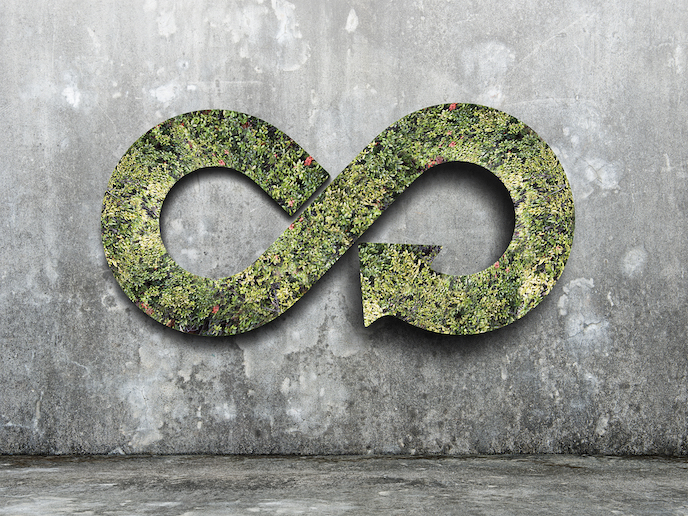Facilitating a smoother transition to a circular economy
The European Union has committed to achieving a 20 % cut in CO2 emissions by 2020 (from 1990 levels). This need to reduce greenhouse gas emissions must be balanced with the need to build a productive, competitive and resource-efficient economy. One way to manage this balancing act is by fostering a more circular economy. Today, most economic processes are linear, meaning goods are made, used and disposed of. A circular economy is an alternative to such resource-intensive traditional economies. In a circular economy, resources are utilised as long as possible, extracting the maximum value from them during their use. At the end of their lifespan, resources and materials are then recovered and, to the greatest extent possible, regenerated into new products. But every action comes with a reaction, and the transition to a true circular economy is no exception. To help understand these reactions, the EU-funded CIRCULAR IMPACTS project developed an assessment based on data and indicators of the macro-economic, societal, and environmental impacts of a successful transition to a circular economy. “The CIRCULAR IMPACTS project strengthened our understanding of circular economy transitions and collected evidence regarding the socioeconomic and environmental impacts of such transitions,” says project coordinator Mr Aaron Best. Assessing the impact The research aimed to support the EU’s transition to a circular economy by providing the European Commission and the Member States with a better understanding of the economic impact of such a transition. To accomplish this, project researchers started by collecting an evidence base of reliable datasets and projects that could be used to develop impact assessments. Researchers used case studies and collected data to help develop innovative approaches to the circular economy and to assess the impact such a transition would have on the economy, society, and resource efficiency. They also compiled model-based estimates and assessments of the macroeconomic, societal and environmental costs/benefits of such transitions. Much of this information has been compiled into the CIRCULAR IMPACTS Evidence Library(opens in new window) – now one of the most extensive online repositories of information for impact assessments related to the circular economy. “The aim of the library is to provide a tool for policy makers and analysts conducting impact assessments that enables them to quickly find studies, reports, articles, and government documents related to the circular economy. Users can simply input keywords or filter by type of evidence, sectors, policy changes and impact,” says Best. A better understanding As a result of this work, the CIRCULAR IMPACTS project has strengthened the theoretical, evidentiary and policy basis for making the shift to a circular economy. "The project has improved our understanding of how to foster a more circular economy in Europe and provided a useful evidence base for others working to analyse this transition," says Best. “It has been very gratifying to see the results of our research project being so actively taken up, not only by researchers, but also by policymakers eager to foster a more resource-efficient economy.” Although the project is completed, Best says researchers are eager to do follow-on work, including looking beyond the EU to the global implications of the transition to a more circular economy.







